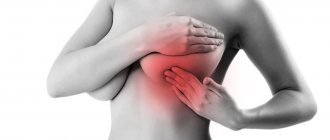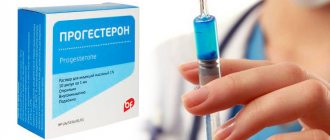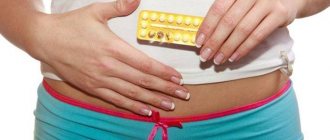Pain during menstruation has a negative impact on both the physical and mental state of a woman. To improve well-being and get rid of an unpleasant symptom, doctors recommend taking medications in different forms. Pain-relieving suppositories during menstruation are one of the most acceptable for the woman herself and at the same time an effective remedy. They allow you to quickly remove such unpleasant sensations.
Pain during menstruation plagues many girls.
Types of pain
Pain during menstruation cannot definitely be called a pathology, although such a symptom, which appears constantly, is a serious reason for a visit to the gynecologist.
Let us remember that menstruation is a natural process of the female body, therefore, it should not cause any special troubles a priori.
The causes of pain during menstruation will be discussed in the corresponding section of the article (causes of painful periods). In the meantime, let’s find out how it is customary in gynecology to divide this symptomatology according to its intensity.
Pain in the abdominal area is assessed according to severity as follows:
- first degree of pain: the sensations are weak, usually they practically do not interfere with the usual rhythm of life;
- second: pain is not the only symptom and is much worse tolerated; women note mild nausea combined with sudden mood swings, and there is a slight drop in temperature with chills. Patients with such symptoms are prone to depression and do not tolerate menstruation themselves well, but also suffer from premenstrual syndrome;
- third: the pain is diffuse, it is localized in the lower abdomen and spreads to the lumbosacral region, the sensations are quite intense. Additionally, general weakness, fever, vomiting, rapid heartbeat, and depression are noted.
Should the patient be anesthetized or should she endure the pain? It all depends on the severity of the symptoms and individual sensitivity to pain. It is generally accepted that it is unacceptable to endure severe pain; this is an additional and unnecessary test for a woman. In case of pain of the first degree, painkillers are usually not required; an exception to this rule would be individual intolerance to the slightest pain. If the second degree is observed during menstruation, it is recommended to relieve unpleasant symptoms with the help of medications. In the third case, medications for pain are needed, and a visit to a gynecologist is required. This occurrence of menstruation can be caused by various reasons, including the developing pathological process in the reproductive system. Let's consider what can cause such a reaction in the female body.
Antispasmodics for dysmenorrhea
The main direction of action of these drugs is the suppression of muscle contractions of the genital organs. However, gynecological specialists consider antispasmodics to be insufficiently effective and rarely resort to them when selecting a treatment regimen for pain accompanying monthly bleeding.
No-spa: Taking these tablets relieves tension from a tight uterus. By reducing the effect of prostaglandin, No-spa leads to an increase in the intensity of menstrual discharge. The result is pain relief and a reduction in the duration of menstruation.
A more budget-friendly option for the drug is Drotaverine.
Take 2 tablets three times a day regardless of food consumption. The maximum effect occurs after 1 hour.
Buscopan: These tablets, in addition to reducing painful antispasmodic sensations, reduce the secretion of the body's digestive system. To obtain the maximum possible effect, you can take 2 tablets, but no more than 10 tablets per day.
Papaverine: The drug has a hypotensive effect due to its antispasmodic properties. Another important characteristic is the ability to form bonds with blood plasma proteins. This contributes to the formation of dose accumulation in the body. Take 1 tablet three times a day.
Halidor: The maximum permissible daily dose is 3 tablets. An important additional quality of Halidor is its calming effect on the body. This is achieved due to the tranquilizing properties characteristic of this drug. The latter are quite weak, but women taking the drug note a significant normalization of their psycho-emotional state.
Spazmalgon and Spazgan: Drugs, similar to the previously discussed antispasmodics, relieve pain, extinguish inflammatory processes and normalize the tone of the uterus. The daily dose is limited to 6 tablets, divided into 3-4 doses.
Antispasmodics will have to be replaced with drugs from another group for those who suffer from the following ailments:
- Increased intraocular pressure (exception: Drotaverine)
- Allergy to components included in the products
- Arterial hypotension
- Kidney failure
- Liver failure
- Severe heart failure
The results from using these drugs can be significantly improved by combining them with NSAIDs.
Causes of painful periods
Painful menstruation is most often associated with hormonal changes. The balance of estrogen and progesterone changes constantly during the menstrual cycle. In the period before the onset of menstruation and during bleeding, progesterone predominates in the body, and a lack of estrogen more often affects a woman’s general mood than painful manifestations. Where then does the pain in the lower abdomen come from? There are various reasons for such manifestations, namely:
- dysmenorrhea, which can develop due to serious hormonal imbalance;
- use of contraception (oral or intrauterine, for example, a device);
- restoration of a normal cycle after abortion, pregnancy or breastfeeding;
- vitamin deficiency and/or lack of minerals;
- genetic predisposition to painful periods;
- eating disorders and related diseases;
- thyroid diseases;
- gynecological problems: pathologies of uterine development, adhesions, cysts or tumors, endometriosis, inflammatory and infectious diseases;
- pathological processes in the urinary system;
- individual reactions and increased sensitivity to changes in hormone balance;
- lack or irregular sex life.
A woman’s condition directly depends on the listed reasons. Pain, especially severe pain, should be relieved immediately. But after the period of critical days ends, you should contact a specialized specialist for advice. Especially if the pain was not observed before, or if it has intensified.
Some factors causing unpleasant symptoms are relatively harmless. For example, with hereditary severe menstruation, the only way to survive these days is to take medications selected by a gynecologist. If the stomach hurts during menstruation as a result of the development of pathological processes, then it will be necessary not only to relieve pain, but also to treat the patient. Moderate and severe pain during menstruation is an alarming symptom; it is unacceptable to ignore it and relieve it with medications without further examination. Only a specialized specialist can identify the true cause of pain, prescribe an effective pain reliever and choose further treatment tactics for the patient.
Prevention of pain during critical days
Sometimes pain during menstruation is relieved with medications, but there are other ways, especially if we are talking about mild symptoms. To help cope with unpleasant sensations:
- special diets: balanced nutrition with vitamins and minerals;
- light physical activity during menstruation (helps improve the general condition of the body and relieve spastic pain) and regular exercise the rest of the time;
- compliance with the drinking regime: sufficient consumption of water, while it is better to reduce or eliminate the consumption of drinks containing caffeine, energy drinks, and alcohol.
These recommendations apply to completely healthy women with mild symptoms (first degree). Depending on the reasons that caused pain during menstruation, you can change the method of contraception, improve your sex life, balance your diet or hormonal levels. Such recommendations should be given by a specialized specialist. There are also traditional ways to get rid of menstrual pain; they will be listed in the “simple ways to relieve pain” section. But they should also be used after preliminary consultation with a gynecologist.
Types of painkillers
What painkillers can you take during your period? The choice of medications depends on the nature and causes of unpleasant symptoms. In some cases, analgesics are recommended, in others - antispasmodics. Some women are helped by regular Paracetamol or Ibuklin, which can be prescribed even to teenagers.
When choosing a medicine, it is important to consider:
- causes of pain during menstruation;
- the presence of concomitant diseases in the patient (some drugs have serious contraindications);
- frequency of administration: for example, analgesics, when taken for a long time, become addictive to the body and require their replacement with a stronger drug or the dose has to be increased to achieve an effect.
A gynecologist will help you choose the best medications for pain in each specific case. Independently choosing a method to relieve symptoms during menstruation can have negative consequences. It is also worth remembering that some medications have minimal contraindications, while other medications have serious restrictions on their use. And most importantly, any painkiller is a temporary measure; it relieves the pain symptom, but the cause of its occurrence remains. For effective treatment, it is necessary to find out its etiology, therefore, a visit to a gynecologist is the most correct decision.
Analgesics
Pain-reducing drugs based on analgin have remained popular for many years, as they have a strong therapeutic effect, eliminating attacks of varying intensity. Analgin, whose generic name sounds like metamizole, inhibits the sensitivity of pain receptors and reduces the transmission of nerve impulses to the brain.
There are a lot of complaints about Analgin and its analogues. Like any effective medicine, if used incorrectly, it can cause severe side effects. It is not recommended for children and adolescents, people suffering from hematopoiesis disorders, or diseases of the digestive tract.
When using analgesics, it is necessary to monitor your well-being: the appearance of severe dizziness, nausea, skin rash or itching may be a consequence of intolerance. In such cases, a replacement is selected.
Analgin is contained in the following popular painkillers:
- Baralgin;
- Minalgin;
- Novalgin;
- Ronaldin;
- Andipal.
The dosage of drugs with metamizole involves the use of no more than 3-4 tablets, it cannot be increased. If the analgesic does not work, the pain may not be due to menstruation.
There are dozens of drugs based on this active substance. They all differ in cost, manufacturer’s name, dosage of metamizole in capsules and tablets. Which remedy will help a particular woman get rid of pain depends on individual susceptibility. Often the same remedy quickly eliminates symptoms in one case, but in another it turns out to be ineffective.
Painkillers for teenagers
Pain relievers during menstruation for teenagers should be selected especially carefully. Firstly, for menstrual pain of weak and moderate intensity, medications may not be required at all; a young body quite often copes with unpleasant sensations on its own. Secondly, the hormonal background in girls is just beginning to change, it is unstable. Therefore, the best option may be hormone-containing drugs that will help eliminate the cause of the pain syndrome. Thirdly, the choice should be entrusted to a gynecologist, who can choose the most optimal treatment option.
Adolescents may experience unpleasant sensations on menstrual periods, menstrual flow has not yet stabilized, and the body experiences stress due to hormonal changes in the body. If mild pain can go away without the use of medications, then severe pain should not be tolerated. Drugs are selected individually, usually recommended:
- Paracetamol and/or Analgin (no more than 3 tablets per day);
- Non-steroidal drugs: Ibuprofen, Diclofenac, Ketoprofen, Indomethacin, Piroxicam, Tamipul, Naproxen. Doses are prescribed according to age (usually 1 - 2 tablets per day for 2 - 3 days);
- Antispasmodics: No-shpa, Papaverine. The dosage most often does not exceed 1 – 2 tablets daily.
All of the listed medications can be purchased at a pharmacy without a prescription; their average cost is 50–100 rubles. But uncontrolled long-term use is undesirable; if your periods are painful every time, you should contact a specialized specialist.
Medicinal herbs and infusions for pain during menstruation
Popular herbal remedies include:
- Horsetail infusion - a dry plant mixed with boiled water. The mixture is infused for an hour, and then consumed a quarter glass every 2 hours during pain.
- Decoction of nettle extract. Reduces heavy discharge, relieves pain, prevents the development of anemia. You need to take the decoction before eating.
- Tea with mint and chamomile. Reduces pain and also helps get rid of depression and calm the nervous system.
- Oregano. Relieves pain and feeling of heaviness. Oregano is poured with boiling water and infused for 30 minutes. Should be taken 3 times a day before meals.
Painkiller injections
Painkiller injections are an alternative to pills. In some cases, it is preferable to give an injection, and several effects are achieved simultaneously:
- if the medicine is injected, it acts almost immediately;
- the digestive system is not affected.
Almost all of the drugs listed above (see Painkillers for teenagers) are also available in the form of injection solutions. Their prices are low, but there are also more expensive medicines. For example, Mydocalm from the group of muscle relaxants, which costs 450-500 rubles per pack. For pain during menstruation, the best remedy in the form of injections is selected by the doctor in accordance with the etiology of the symptom.
Indications for use
Despite the huge selection of products offered at the pharmacy, vaginal and rectal suppositories are considered the most effective. They relieve symptoms of any inflammation.
Women are prescribed medications for pain relief during menstruation if they have the following diseases (or their symptoms):
- pain during menstruation,
- the presence of adhesions,
- benign formation in the uterus.
The use of suppositories has advantages:
- The substances present in the composition immediately enter the bloodstream, bypassing the gastrointestinal tract.
- The effect comes faster than from tablets.
- The drugs practically do not cause allergies and do not leave an unpleasant taste.
- No special training or outside assistance will be required during insertion.
The only drawback is that it is water-based. Due to this, after administration, part of the drug flows out, causing some discomfort.
Inexpensive drugs
Painkillers for menstruation can be divided into several price categories. The cheapest (within 50 rubles) are:
- Antispasmodics: Spazgan, Baralgin, Spazmalgon, Novigan;
- Combined: Phenobarbital;
- Antipyretics (when pain is accompanied by fever): Aspirin;
- Analgesics: Paracetamol, Analgin, Nimesulide;
- Non-steroidal drugs: Nurofen, Ibuprofen, Solpaflex.
Any of them will help relieve pain; the method of use is indicated in the instructions.
Medicines with strong pain relief
Tablets for period pain are selected individually. For severe pain, some medications do not help. This can happen for several reasons:
- the drug is chosen incorrectly, for example, Nurofen during menstruation will be ineffective if the pain is caused by a spasm, although it will bring some relief, since it has an analgesic effect;
- the medicine is used for a long time and often: when conventional analgesics are used frequently and cease to help, Ketanov is prescribed for menstruation as a strong remedy. This remedy can relieve the most severe pain; it is prescribed even in the postoperative period. It is not recommended to drink Ketanov without a doctor's prescription; it is a non-narcotic analgesic with a fairly strong effect.
The list of potent painkillers also includes such drugs as Solpadeine, Ketonal, Nimesulide, Diclofenac, Baralgin, Spazgan and Trigan, No-shpa, etc.
If the tablet does not help, then it can be replaced with an injection (most drugs are available in the form of solutions for intramuscular administration). Some medications are best used in the form of a suppository, then they take effect faster.
Pain-relieving suppositories for menstruation: containing papaverine, indomethacin, paracetamol, ketaprofen, naproxen, cefekon, eferalgan, etc. Some people find that rectal suppositories containing similar medications help. They help well with menstrual pain, act quickly, are absorbed without going through the stomach, and therefore have fewer side effects in terms of impact on the gastrointestinal tract.
List of painkillers
What pills to take for painful periods - the answer to this question and the choice of drugs should be entrusted to a gynecologist, who will determine the main criterion - the cause of the pain. Different groups of drugs have their own mechanism of action. In a critical situation, you can use what is available in every pharmacy (analgesics, antispasmodics, anti-inflammatory drugs, etc.).
With constant long-term use, it is necessary to take into account the doctor’s prescription and his recommendations in this matter. Medicines are selected based on the identified etiology of menstrual pain, taking into account the presence of concomitant diseases and contraindications to taking a particular drug. Sometimes the choice is explained by prices, but most drugs are inexpensive and available to the consumer (cheaper analogues can also be used). But for women, it is important to choose the right method for eliminating pain and find out its etiology in order to begin comprehensive treatment of the root causes of its occurrence.
Nonsteroidal drugs
An anesthetic for menstruation is prescribed by a doctor, this will help you choose the most effective drug. Non-steroidal anti-inflammatory drugs are often recommended to patients; they usually have a complex effect:
- antipyretic;
- anti-inflammatory effect;
- relieve pain.
The list of painkillers in this group includes derivatives of various substances:
- indoleacetic acid: indomethacin, sulindac, etc.;
- propionic acid: naproxen, flurbiprofen, nalgesin, ketoprofen, tiaprofenic acid, ibuprofen is often prescribed for menstruation;
- phenylacetic acid: diclofenac and its analogues;
- sulfonamide: nimesulide.
You can drink paracetamol, which belongs to this group of drugs, but is a selective COX-3 blocker and therefore does not have anti-inflammatory properties. But paracetamol can be considered as an effective medicine for menstrual pain.
It is recommended to take ibuprofen and other non-steroidal medications two days before and in the first days after the start of menstruation. The daily dose for adults usually does not exceed 3 – 5 tablets daily.
Antispasmodics
Antispasmodics during menstruation will be effective only if the pain syndrome depends on spasms. In other cases they don't help. Spastic pains are well relieved with medications such as:
- drotaverine;
- no-shpa;
- buscopan;
- papaverine, etc.
You can take a pill, give an intramuscular injection, or use vaginal or rectal suppositories.
Analgesics
Medicines with an analgesic effect are considered as universal painkillers for menstruation. They act directly on the receptors and have an analgesic effect, regardless of its cause.
Novalgin, Baralgin, Ketanov, Nimesil will help you quickly overcome pain; analgin helps well with menstruation. Drugs from this group are started to be taken when symptoms occur, either in the form of tablets or intramuscular injections. The advantage and disadvantage is the fast and short-term action, respectively.
Hormonal medications
Hormone-containing drugs for menstruation are a more specific treatment. They act indirectly, affecting directly the cause of pain. They are selected after studying the level of hormones during menstruation. To stabilize the background, they often use:
- Ovidon;
- Antiovin;
- Trisiston;
- Diana-35;
- Yarina, etc.
How to insert suppositories
When introducing suppositories, follow simple rules:
- Wash your hands with soap.
- Quickly remove the wrapper from the candle.
- Lie on your side, pull your legs up to your chest if you are administering the suppository rectally.
- Lie on your back, bend your legs if inserted vaginally.
- Take the candle by the thick edge and soak the thin one in water.
- Insert, pushing, to a depth of 2 cm.
- Remain in this position for 5 minutes.
- After the procedure, wash your hands.
The choice of medications for painful menstruation is huge: a pharmacist or pharmacist at the pharmacy will guide you through it. But only the attending gynecologist can choose the right medicine and its dosage, especially if there are concomitant diseases.











